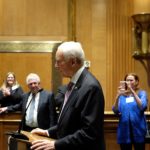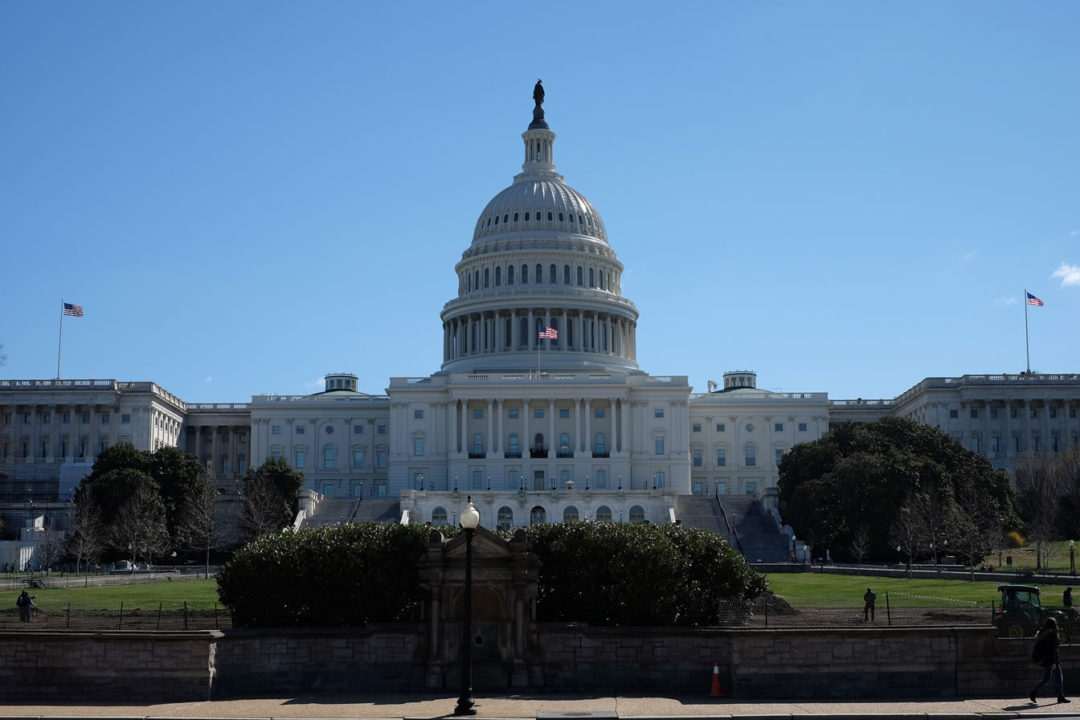With the current state of politics, it’s easy to be cynical and feel pessimistic about efforts to protect one’s interests, but now is as important a time as ever to reach out and petition for the support of your local government officials. It’s particularly important in the natural products industry which is full of impassioned business owners and consumers, but has experienced a great deal of pressure from government regulation and overreach.
Despite the strong activism from members of our industry through correspondence with letters and phone calls, there is nothing more valuable than business owners engaging with officials face to face. Placing a face to a request creates a more memorable impression and greater level of empathy than a phone call or letter may.WholeFoodsMagazine participated in Natural Products Day representing the state of New Jersey along with several major industry manufacturers and suppliers. In addition to our established agenda, we made it a point to emphasize the importance of dietary supplement companies to the local economies of New Jersey.

This is an important point because congressmen respond to the concerns of their local constituents and as Chad Lewis, D.Env., MPH, VP regulatory affairs and quality, Universal Nutrition, based in New Brunswick, NJ pointed out in our meetings, not only does a dietary supplement company employ hundreds in the manufacturing of its products, but also supports an ecosystem of industry that includes the production of labels and packaging as well as distribution. James Roza, director of product development, Reliance Private Label Supplements, based in Edison, NJ seconded this point by explaining that the dietary supplement industry is indeedmanufacturing,even if the term is generally associated with other industries such as the motor vehicle industry. In fact, dietary supplements remains one of the last bastions of manufacturing in the state of New Jersey and therefore an important source of employment for its citizens and income for the state. This effect is tangible and had an immediate impact on a congressman’s constituents.
Outlined below are the requested actions and considerations from this year’s Natural Products Day:
- Expansion of Dietary Supplement Coverage. As the American Health Care Act (AHCA) was being debated, congressmen were requested to consider the expansion of dietary supplement coverage in the bill to allow the reimbursement of dietary supplements from Health Savings Accounts (HSAs) and Flexible Spending Accounts (FSAs) of up to $1,000 per year. This proved to a difficult ask for those representing New Jersey, considering the higher prevalence of Democratic law makers who were voting against the effort to repeal and replace the Obama Administration’s Affordable Care Act. Mark Glazier, CEO and founder of NutraBio Labs, based in Middlesex, NJ, relayed an encounter with an aid of a Democratic law maker who when requested to consider the expansion should the AHCA pass the House, made it clear that nothing regarding the bill would be considered and was unresponsive for the remainder of the meeting. WholeFoods’ personal experience with legislative assistants and correspondents was much more amicable, though their opposition to AHCA was clear.
- Considering the opposition of AHCA, another requested action which is very much in the same vein, but separate from AHCA, was the Health Savings Act of 2017 sponsored by Senator Orrin Hatch (R-UT) and Representative Erik Paulsen (R-MN). This bill essentially seeks to create the same expansion of HSAs and FSAs to the purchase of dietary supplements.
- Women, Infants and Children (WIC) Supplemental Food Program. This program provides federal grants to states for supplemental foods, health care referrals and nutrition education for low-income, at risk pregnant, breastfeeding and postpartum women, infants and children up to age five. The WIC program’s mandate it to provide foods that contain target nutrients likely to be insufficient such as protein, vitamin A and C, iron and calcium. The issue is that micronutrient deficiency remains a problem in at-risk population despite the program’s many successes. WIC Food Packages currently include vitamin and micronutrient fortified foods but do not include dietary supplements which may be a great complement to food and reliable source for vital nutrients not received from foods. NPA recommends vitamins A, B, C, D,E, folic acid, iron and DHA/EPA omega-3 fatty acids. The Association also argues that the review of WIC Food Packages should be conducted more frequently, at least every five years as opposed to the current review every decade in order to reflect the pace of nutritional science.
- Personal Care Products Safety Act. Developed to provide clear mandates on Good Manufacturing Practices (GMPs), funding for associated facility inspections and to tie funding to enforcement of cosmetics, the legislation would amend the Federal Food, Drug and Cosmetics Act to require cosmetic companies to register their facilities with the U.S. Food and Drug Administration (FDA) and to submit cosmetic ingredient statements. Unfortunately, there is only GMP guidance, not a final rule for cosmetics, which is not legally binding or have the force of law. NPA supports a bill that includes mandatory GMPs to be issued in the form of final rulemaking and comment as well as a formal definition for the term “natural” in the cosmetics industry.
- FDA New Dietary Ingredient Draft (NDI) Guidance. As discussed at length in previous articles, the NDI draft guidance poses a significant economic challenge for the industry and NPA believes that FDA overstepped its bounds as defined by DSHEA.
- NPA once again requested a Government Accountability Office report examining the FTC’s waste of taxpayer dollars related to the U.S. (FTC) vs. Bayer Corp case.
- Join the Congressional Dietary Supplement Caucus, which was founded in 2006 and provides a bipartisan and bicameral forum for legislators to exchange ideas and information about dietary supplements and facilitate discussion among lawmakers about the benefits of dietary supplements.










